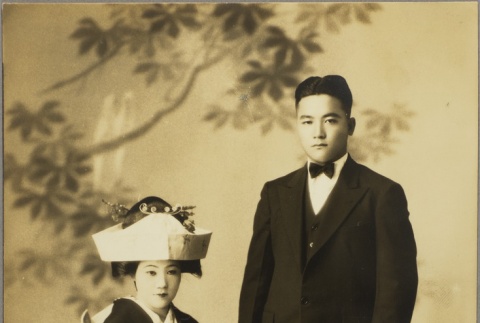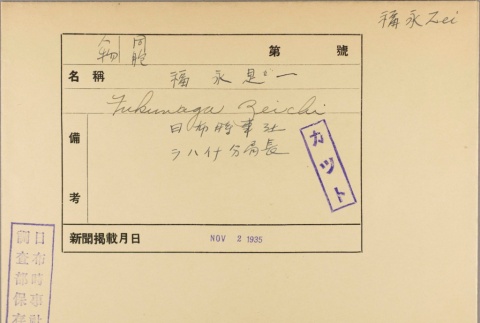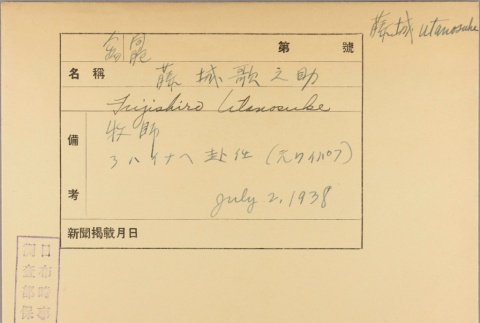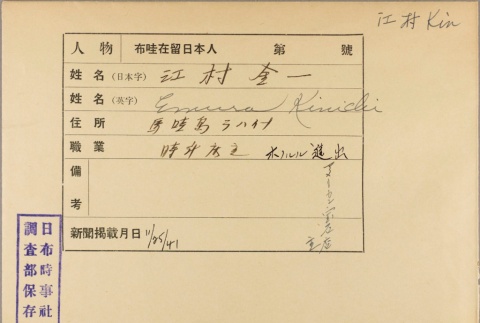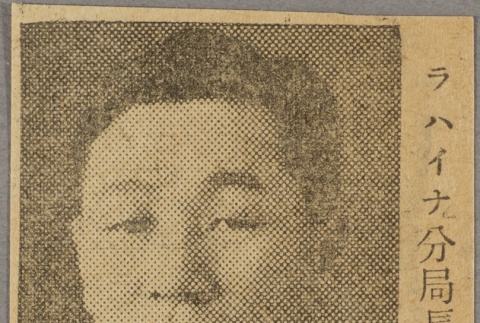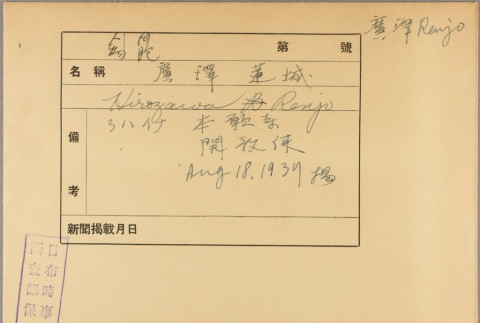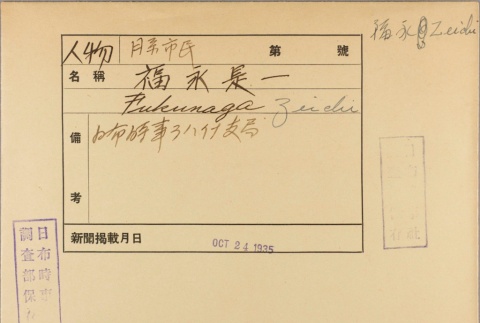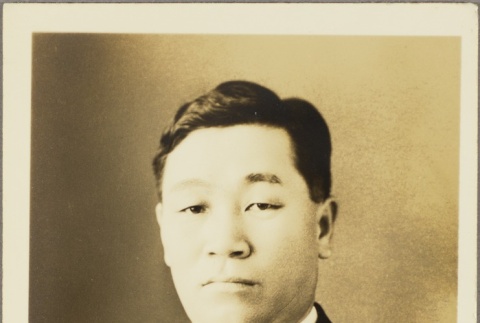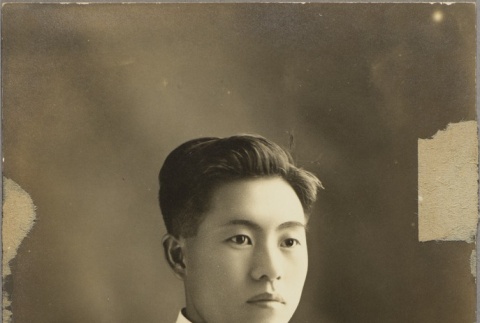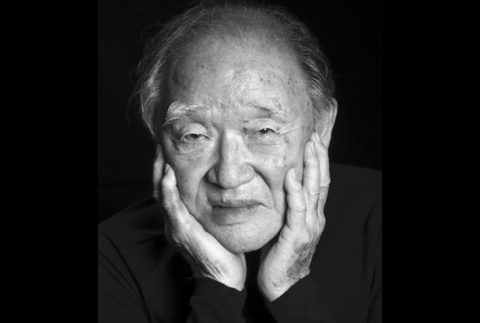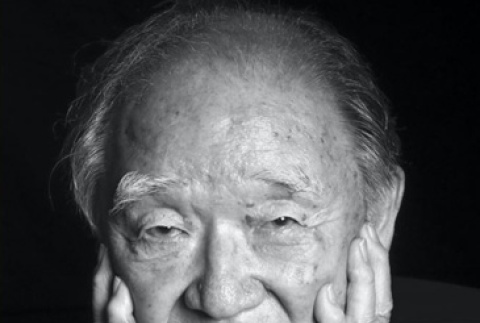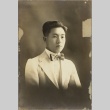11 items
11 items
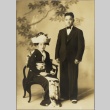
img
Wedding photograph of Toshio Anzai and Renayo Hatamoto (ddr-njpa-5-23)
Councilor of Maui district.
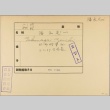
doc
Envelope of Zeichi Fukunaga photographs (ddr-njpa-5-866)
Caption on front [translation]: "Hawaii Times Lahaina branch owner."
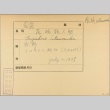
doc
Envelope for Utsunosuke Fujishiro (ddr-njpa-5-785)
Caption on front [translation]: "Clergyman, left for his post in Lahaina."
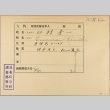
doc
Envelope of Kinichi Emura photographs (ddr-njpa-5-500)
Caption on front [translation]: "Owner of a watch shop."
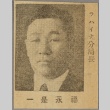
doc
Zeichi Fukunaga (ddr-njpa-5-867)
Caption on front [translation]: "Hawaii Times Lahaina branch owner."
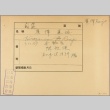
doc
Envelope of Renjo Hirozawa photographs (ddr-njpa-5-1285)
Caption on front [translation]: "Lahaina Hongwanji missionary."
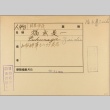
doc
Envelope of Zeichi Fukunaga photographs (ddr-njpa-5-628)
Caption on front [translation]: "Nippu Jiji, Lahaina branch."
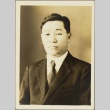
img
Zeichi Fukunaga (ddr-njpa-5-629)
Caption on reverse [translation]: "Nippu Jiji, Lahaina branch."

Narrator Junji Sarashina
Junji Sarashina was born in 1929 in Lahaina, Hawai'i, the son of a minister of a Buddhist Temple Nishihongan-ji and a teacher of Japanese-style flower arrangement, music, sewing, and cooking. The youngest of five children, Sarashina grew up surrounded by temple members (mostly plantation workers) and their families who enjoyed community picnics and samurai films. When …
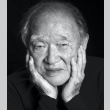
vh
Junji Sarashina Interview (ddr-densho-1021-5)
Junji Sarashina was born in 1929 in Lahaina, Hawai'i, the son of a minister of a Buddhist Temple Nishihongan-ji and a teacher of Japanese-style flower arrangement, music, sewing, and cooking. The youngest of five children, Sarashina grew up surrounded by temple members (mostly plantation workers) and their families who enjoyed community picnics and samurai films. When …
